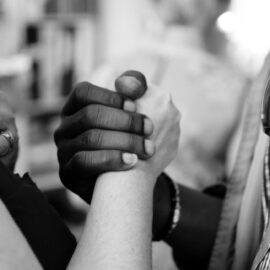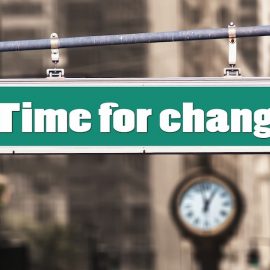
What are the best quotes from All About Love? Are you ready to open yourself up to love again?
All About Love is an exploration of love’s transformation and its potential to create social change. Writing from a feminist perspective, bell hooks provides a roadmap for finding your way back to love.
Continue reading for bell hooks’s All About Love quotes.
All About Love Quotes
Can a commitment to love really reshape our society for the better? In All About Love, bell hooks explores the power of love from a feminist perspective using personal stories and cultural analysis to develop her argument. Delving into the complexities of love within the context of broader social forces like race, gender, and class, hooks challenges conventional notions of what love is and provides a roadmap for rooting your life in love. Centering love as a core value, she argues, won’t only transform your relationship with yourself, but also with your friends, family, and the world around you.
Below is a selection of bell hooks’s All About Love quotes with context.
“All too often women believe it is a sign of commitment, an expression of love, to endure unkindness or cruelty, to forgive and forget. In actuality, when we love rightly we know that the healthy, loving response to cruelty and abuse is putting ourselves out of harm’s way.”
hooks says love is distorted to emphasize the importance of power and control over reciprocity and trust. hooks explains that people often develop a harmful understanding of love based on interactions in their families of origin. For example, in some cases, children grow up experiencing verbal and physical abuse that’s justified as love, while other children are raised in overly permissive households where they’re allowed to do or get whatever they want, as if that’s an act of love. hooks argues that both scenarios contribute to a skewed understanding of love rooted in the dynamics of reward and punishment rather than a genuine commitment to another person’s spiritual growth.
hooks doesn’t blame families for not expressing love in healthy ways: She understands that many caregivers have learned a distorted version of love from their own families. To break this cycle of unhealthy love, she explains, we must learn and teach a new definition of love, one that centers spiritual growth and balances independence and connectedness to allow a positive self-image to flourish within a functional family environment. By embracing this new understanding of love, we can create a nurturing atmosphere conducive to personal growth and well-being.
“But many of us seek community solely to escape the fear of being alone. Knowing how to be solitary is central to the art of loving. When we can be alone, we can be with others without using them as a means of escape.”
hooks says that the primacy of romantic relationships has inhibited our ability to nurture broader communities. The value of community in the US has been overshadowed by a focus on the nuclear family, with a romantic couple at its center. The nuclear family has been presented as the ideal structure to ensure personal well-being, but more often the combined forces of capitalism and patriarchy make the family unit a place of oppression rather than love.
Being in community with other people is critical because it allows you to expand your practice of love. Once again citing Peck, hooks defines community as a group of people who’ve learned to communicate honestly and share a strong commitment to support and empathize with each other in joyful and difficult times, allowing them to build relationships that transcend superficiality.
“To love well is the task in all meaningful relationships, not just romantic bonds.”
According to hooks, in the US, romantic relationships are often portrayed as the most important form of love. However, she argues, when we focus solely on finding romantic love or investing all our attention in a single loved one, we risk developing codependency and neglecting our other relationships.
Furthermore, hooks adds that the way in which we’ve conceptualized romantic love is flawed. We think of it as a force beyond our control, a passion that defies logic. hooks points to how the language of “falling in love” suggests that there’s no agency or intentionality in romantic relationships. hooks explains that this idea of love isn’t only false, but is also damaging. Idealizing romantic love can lead us to stay in unhealthy and toxic relationships that only appear to be loving. Instead of practicing a love ethic, these relationships are often where we play out the unhealthy dynamics from our families of origin, exerting power over others or seeking approval by neglecting our own needs.
hooks suggests that to practice healthy love in romantic relationships, we must first see it modeled. She argues friendships are where we’re best able to learn about love because friendships often allow us to be our most honest and authentic selves and to practice being in conflict while still loving each other. Love, if defined as a commitment to the spiritual growth of yourself and another, is equally valuable regardless of the type of relationship. While the relationship looks different, the love behind it is the same.
“Giving generously in romantic relationships, and in all other bonds, means recognizing when the other person needs our attention. Attention is an important resource.”
hooks explains that love is always an act of reciprocity, in that both people take responsibility for nurturing the relationship.
hooks argues that patriarchy has belittled this kind of investment in another person, relegating it to the responsibility of women. Instead of mutual care, patriarchy upholds the value of power and control. According to hooks, when power is the primary focus in a relationship, both men and women end up vying for control over the other person, whether that be through physical force, verbal abuse, financial control, or manipulation.
hooks explains that love won’t grow in a relationship where the primary focus is power because the search for power is inherently selfish. Loving someone requires us to move past the pervasive selfishness of our culture and become fully invested in the well-being of another person. However, hooks acknowledges that when we relinquish power, we often relinquish a feeling of control, leaving us feeling vulnerable and in search of something we can trust.

———End of Preview———
Like what you just read? Read the rest of the world's best book summary and analysis of bell hooks's "All About Love" at Shortform.
Here's what you'll find in our full All About Love summary:
- How a commitment to love can reshape our society for the better
- The power of love from a feminist perspective
- Why romantic love is not the most important form of love






